Black Peaks' Joe Gosney: “It’s always been about rhythmic playing, as opposed to being really dextrous”
The Brighton alt-rockers' guitarist on blockbuster second album All That Divides
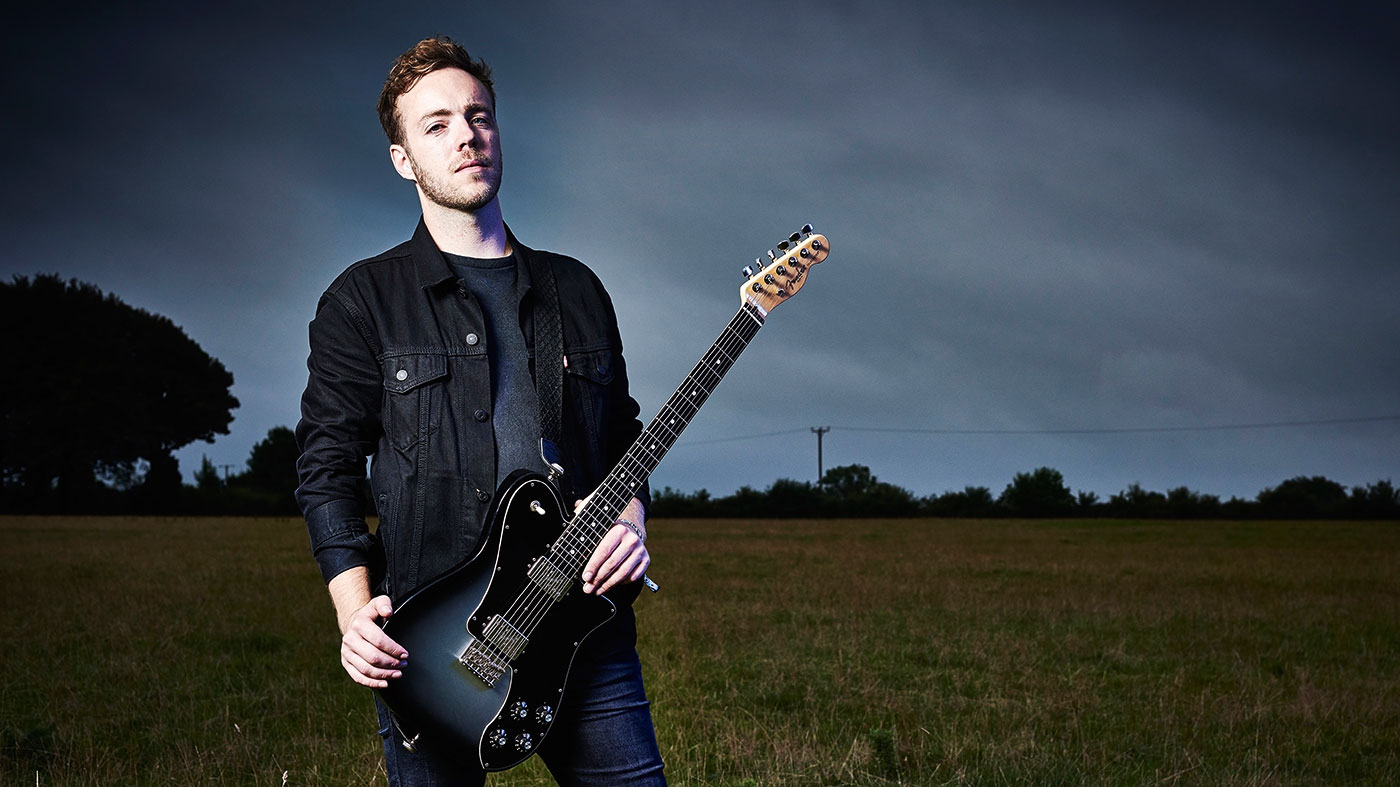
There are few UK bands more hyped than alt-prog-metallers Black Peaks, but in this instance, the fervour surrounding the Brighton four-piece is very much deserved.
Second album, All That Divides, solidifies the Mastodon-meets-Mars Volta ideals of its predecessor and channels it into nine tracks of meticulously crafted heaviness, which provides an arresting showcase for guitarist Joe Gosney’s mercurial playing approach, which spans everything from punishing detuned riffage to ethereal extended chords.
Black Peaks first rose to prominence with the release of 2016’s Statues, a debut that came fully formed with the kind of sinuous song structures that can only come from an unadulterated dedication to the craft.
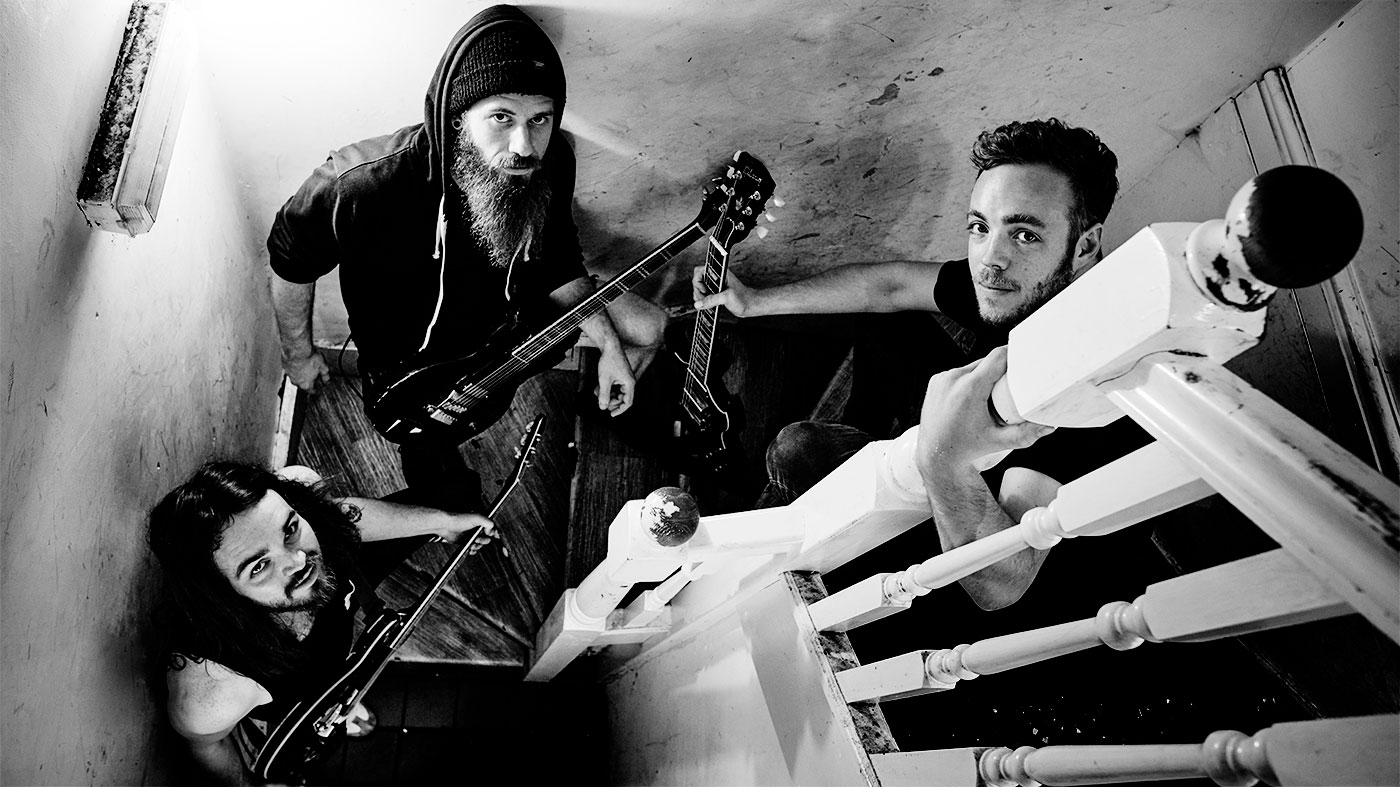
Black Peaks and Heck talk live gymnastics, tour stories and toasties
The band’s audiences and idols quickly took note, with a series of UK and European tours, a headline position at this year’s 2000 Trees festival and support slots with Architects, System Of A Down and Prophets Of Rage. Yet none of this phases Joe, who points out that what seems like a meteoric rise has been the culmination of years of collaboration and hard graft.
“It’s always funny when people say it seems like it’s been a rapid ascent,” he muses, “because for us, we’re so involved with it, and on a day-to-day basis, on every decision that’s being made, whether that’s a poster for a gig, or the routing of the tour… Every little thing we’re thinking about and talking about.”
Like the band’s music, Joe’s journey to the guitar took the road less travelled. He may be the man pulling the strings now, but it was his background as a drummer that lent Black Peaks their idiosyncratic riff clock. It played a big part in shaping his approach to playing then, and continues to fuel the creative process today.
“The fundamentals lie in rhythm for me,” he considers. “I used to down-tune the guitar to drop D and just play barre chords, but I feel like my left hand has always played catch-up with my right hand, because it’s always been about rhythmic playing, as opposed to being really dextrous with my left hand, which I’m still learning.”
Get the MusicRadar Newsletter
Want all the hottest music and gear news, reviews, deals, features and more, direct to your inbox? Sign up here.
It was Joe’s desire to explore more melodic sensibilities that first drew him to the electric, as well as a love for guitarists who stalked out their own paths: Mastodon’s Brent Hinds, Tool’s Adam Jones and Omar Rodriguez-López of The Mars Volta. Like those aspirational players, Joe is never standing still, and neither are his compatriots.
Attack of the drones
“When Black Peaks first started, we were playing a lot more weird shit like The Mars Volta,” he recalls. “We originally played as a three-piece without Will [Gardner, frontman], so it was just instrumental. And then when we got Will in, that’s when the band started to take on some of the heavier sound, especially with his screaming. But it’s still changing now; we’ve already started writing bits of new music, and that’s already sounding diff erent to the second album. We want every album to be different from the last one, as much as possible.”
Producer Adrian Bushby - whose past credits with Muse and Foo Fighters give a hint at what could lie ahead for Black Peaks - proved to be key in committing the band’s dynamic and rhythmic shifts to record, knowing just when to step in and when to ease off . It’s an approach that inspired Joe’s performances on the new album.
Adrian would sit back and let me just dial everything in, so what you’re hearing on the album is very much Black Peaks sounding like Black Peaks
“Adrian is the hardest-working person I’ve ever worked with in any capacity,” Joe enthuses. “He’d be up at 6:30, 7am every morning making everyone coffee, and then he’d also be working until 2 in the morning. When you see someone work that hard, you just want to give them your best.
“He was also very hands off when it came to guitar sounds, which I found strange at first, because I’m not a massive tech-head or anything. But Adrian would sit back and let me just dial everything in, so what you’re hearing on the album is very much Black Peaks sounding like Black Peaks, and I think you’ll find he does that with all his records; he’s got a way of making those bands sound like the best versions of themselves.”
Aside from firing up a cornucopia of living-the-dream amp heads, including a Marshall Plexi, Diezel VH4 and Orange Thunderverb, Joe’s other great discovery on All That Divides was a quick-fire alternate tuning. While he usually opts for D standard, with the odd drop-C sledgehammer thrown in, he explains that one small tweak was behind a number of the album’s highlights and his now-trademark chord drones.
“The first string on Home is tuned down half a step, then on another song on the album it’s tuned down a full step from D standard,” he reveals. “I play a lot of open picking stuff, where I’m allowing those strings to ring out and be quite chimey, so I play around a lot with tuning the first string to the key of that track. It just makes the guitar sound different, and makes it more fun to write with sometimes.”
Sneak Peaks
We take a look around Joe’s cunningly co-ordinated guitar rig
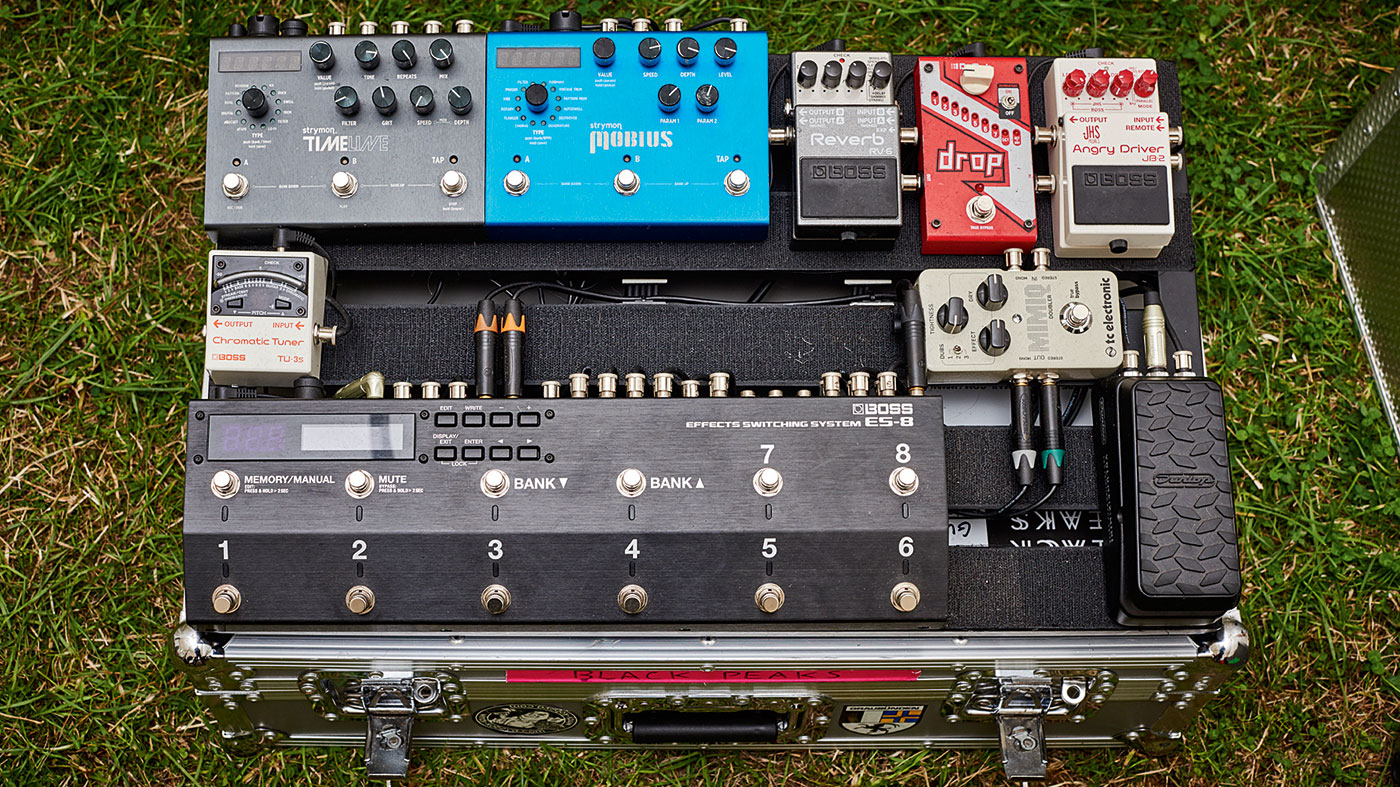
Pedalboard
DigiTech Drop
“I use it just for the octave and dry signal. It’s just for those single-note riffs, to fatten the low-end up a bit.”
Strymon TimeLine
“I’ve gone through a bunch of different presets: dual delays, reverse on some things, and then it’s all running on MIDI through to the ES-8, so I have a bank for each song. We don’t play to a click, but tempo-wise, they’re in sync roughly, if we’re playing in time! [laughs]”
Strymon Mobius
“I use some chorus but also the Leslie effect, the rotating speaker... I use that a bunch, more on the new songs.”
Boss /JHS JB-2 Angry Driver
“I’m using both sides on that. It’s running through the ES-8; you can toggle between the settings via the ES-8, which is cool. I run it into the distortion with the octave on; it just gives the octave a bit more bite, and then I use it again with the distortion, but the Blues Driver side of it with the drive turned right down but the volume right up; I use it more as a clean boost for solo stuff.”
TC Electronic Mimiq Doubler
“I’m running it in stereo, which is really cool, actually, especially for the single-guitar stuff. It doubles the signal but with the slightest bit of latency on one of the amps, and it just sounds chunkier; you put it on and just everything widens out. It’s on everything, all the time.”
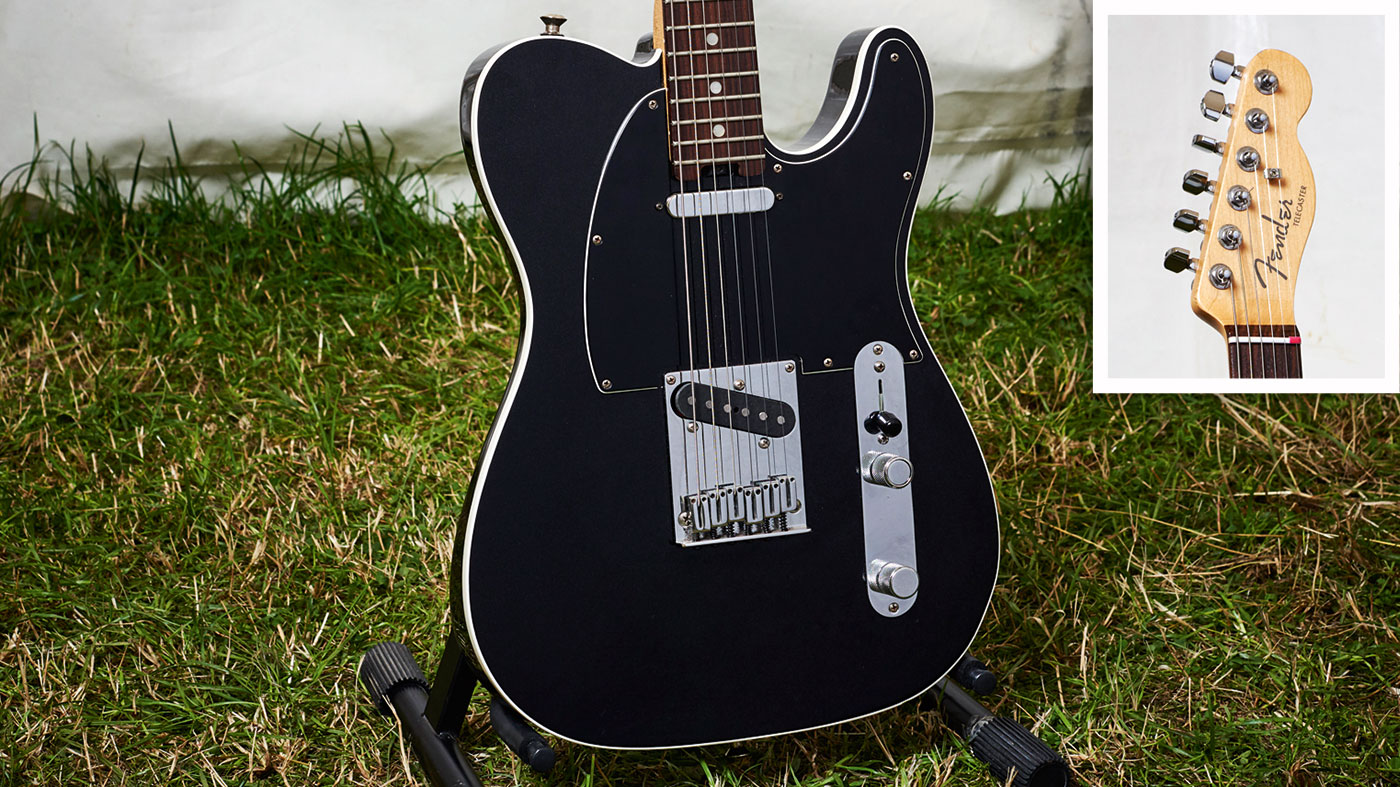
Fender Elite Telecaster
“First of all, I got the black Elite Tele [below] with the single-coil pickups which I love and it cuts through really well on certain songs...”
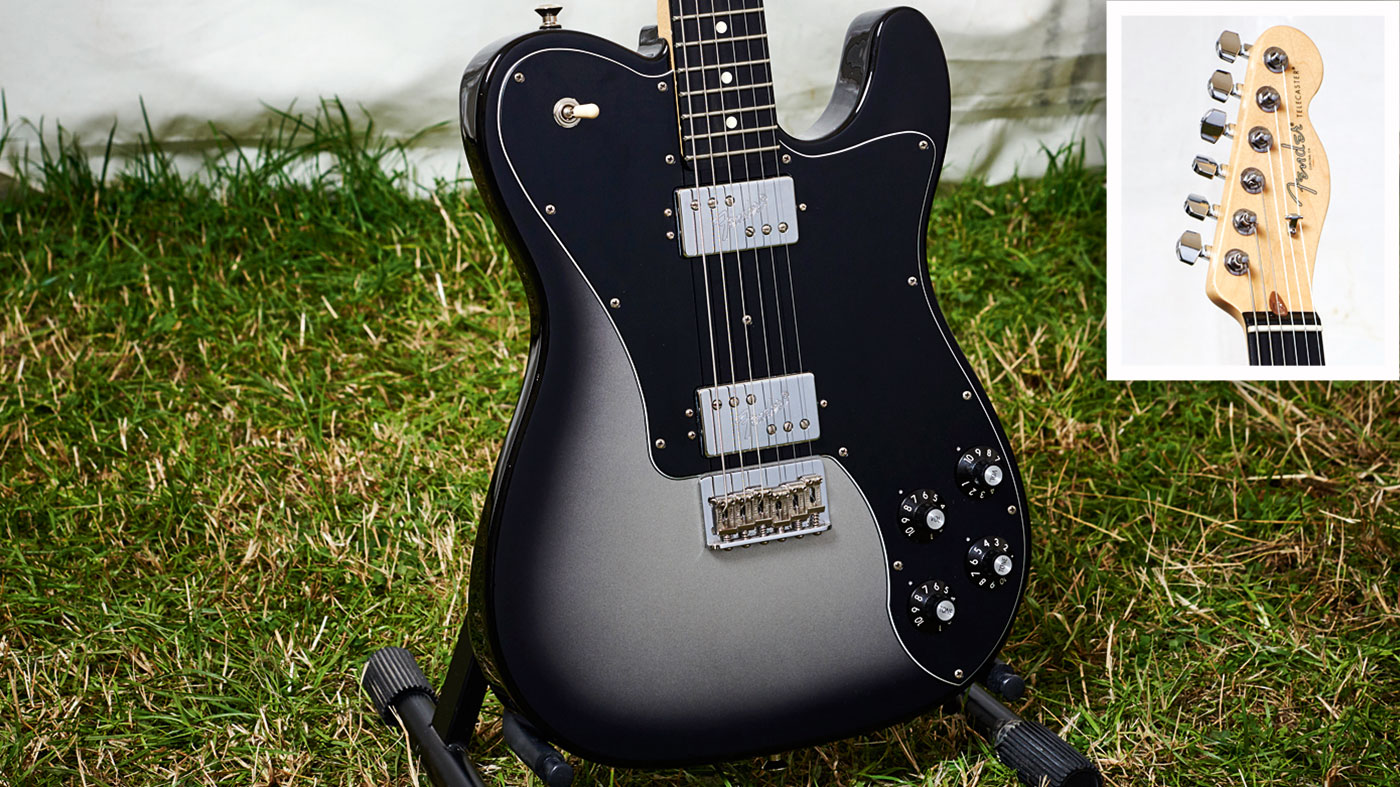
Fender Telecaster Deluxe Silverburst
“I really wanted a Tele with humbuckers in that I could use for the majority of our set. It turned up in the post, and it was the most beautiful guitar I’ve ever seen. And not only that, but it’s the best guitar I’ve ever played. It holds a tune really well, and it’s just got a vibe to it. Acoustically, it’s really loud, so I’ll just sit there at home on the couch playing it acoustically and love it, and then switch it to an amp and it just roars.”
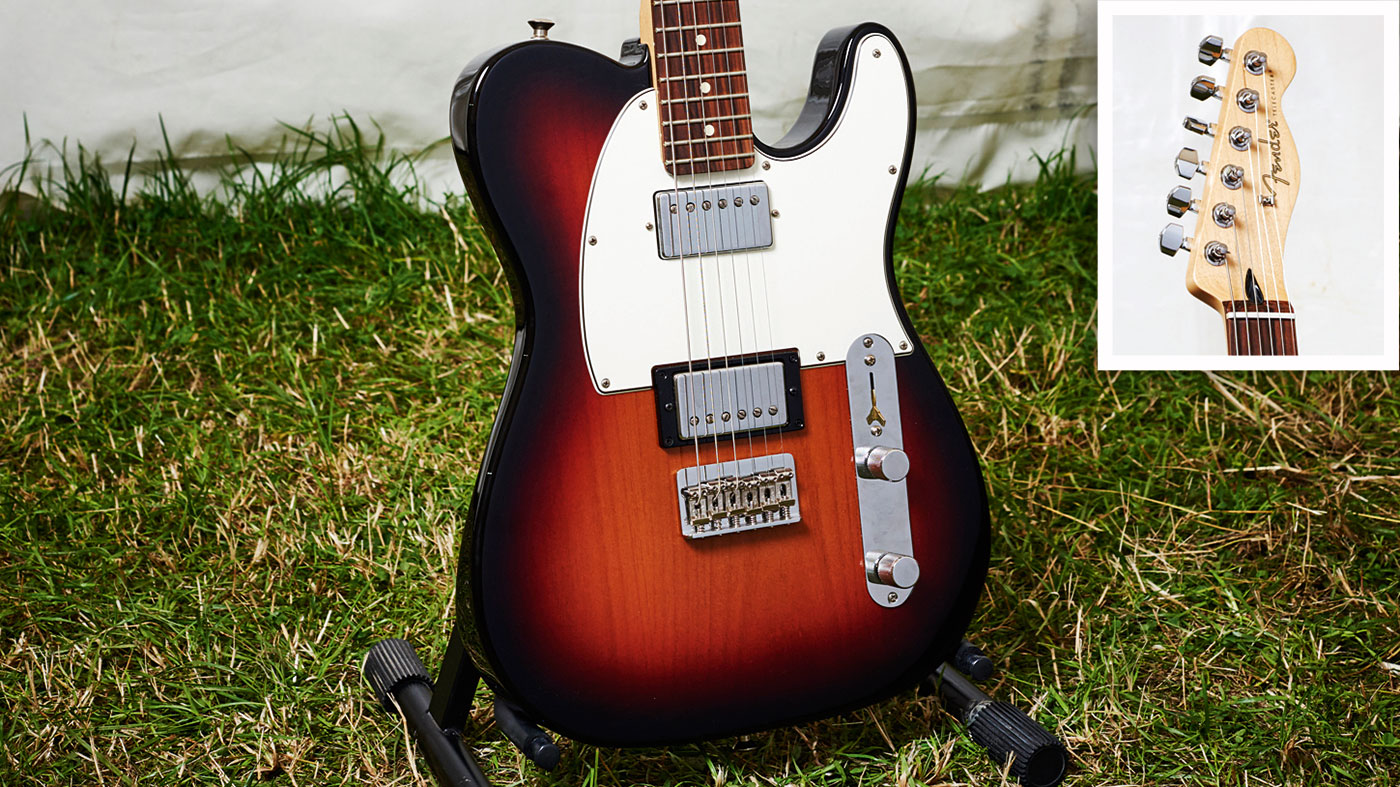
Fender Player Series Telecaster
“I used that on the whole of the last tour. It’s very similar to the Silverburst Deluxe; it’s just a rock machine. A really solid guitar, and I use it every night. It’s got the pau ferro fingerboard; I’d never tried one of those before, and it feels great to play.”
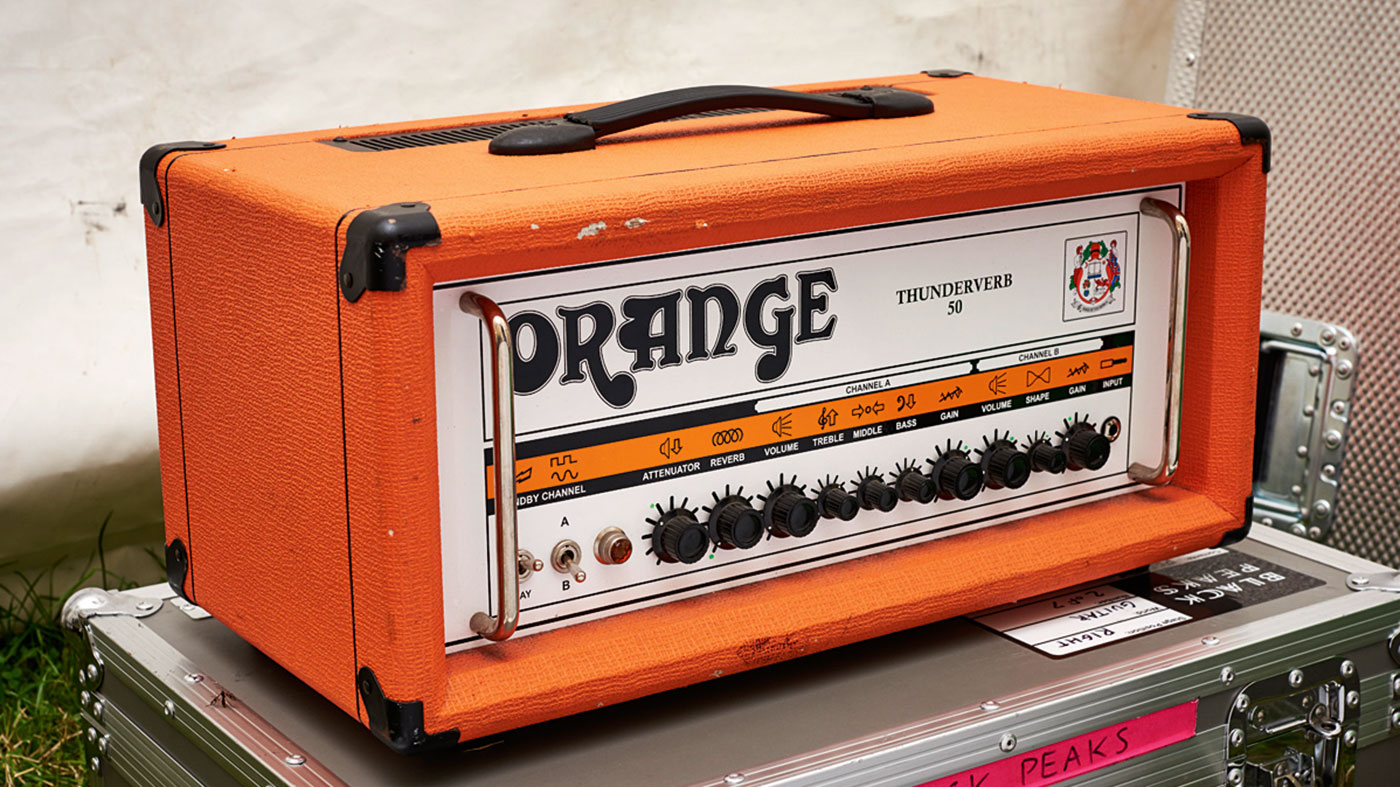
Orange Thunderverb 50 & Rocker 30
“They’ve been in my rig forever now. They’ve got a nice warm sound - I like the distortion on them, because they’re not fizzy at all; it’s just chunky. I’m channel-switching both via a Boss ES-8, so it’s stereo, but then both go from clean to dirty.”
Peaky blinders
This thinking-outside-the-box mentality also found Joe emboldened to turn his hand to some head-turning melodic lead moments, delivered via his arsenal of Teles and SGs, although solos are definitely something he had to build up to in Black Peaks.
“I think we did avoid it to start off with,” he ponders. “I’m not the best lead player or anything, but I’m trying to serve the songs as well as I can. And Fate I & II, the last song on the album, we demoed that before, and it never had that part; it felt like it needed an extra layer on top of it, so we just put it on and it’s ended up staying there, which I’m stoked about.
As a wedding band guitarist, you have to play a lot of s**t music, but it gives you really good discipline
“I think people shy away from it too often; I’m a sucker for all that old stuff. It can be a bit cheese, but I listen to bands that will just rip solos, so why not? I’m only gonna get to make that album once, so I may as well throw down as much as I can!”
Speaking of throwdowns, Black Peaks are one of those fine breeds of band that bring as much to the stage - maybe more - than they do the studio. Their live show is a dizzying display of ebb and flow, with devastating bulldozer riffs and dream-like textures deployed in a formidably tight formation.
The secret to Joe’s impeccable life performance lies in his past six-string life as a wedding band guitarist - an outfit that ran concurrently with Black Peaks during the group’s formative years.
“You know what, you have to play a lot of shit music, but it gives you really good discipline, because you have to be playing 20 songs a night - and playing three or four times a week, you know, it really helped me get used to any sort of troubleshooting on a show,” he explains.
“Especially when it’s someone’s wedding; it’s the most important day of their lives and you can’t be like, ‘Oh shit, this pedal’s not working!’ It helps you fix things and learn stuff quickly as well. I think it was a good thing to do; I had to stop when I did, only because it genuinely started to kill my love for playing guitar - there are only so many Razorlight songs you can play!”
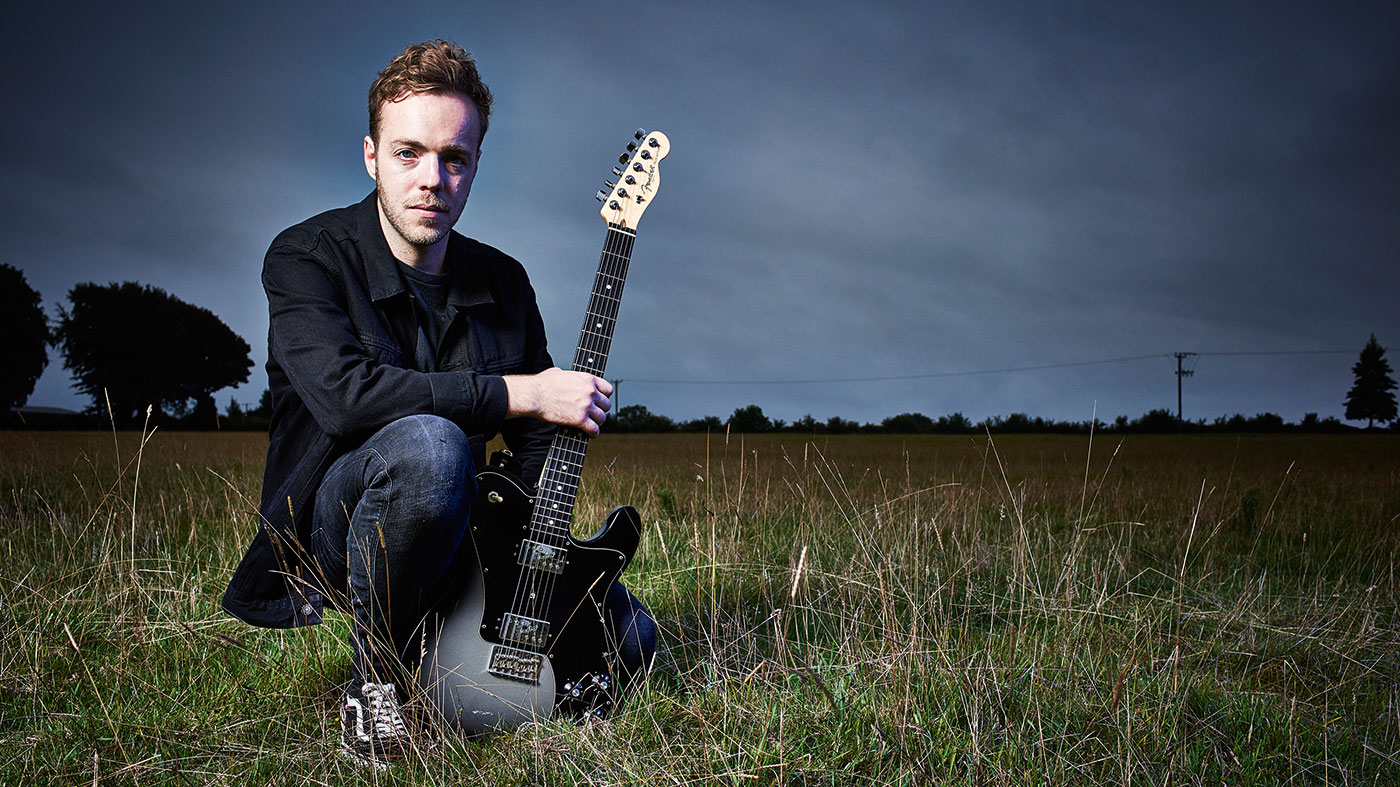
Wall of sound
Although years of honing abilities are integral to Black Peaks’ surgically precise performances, that doesn’t explain quite how they sound so uncompromisingly gargantuan live, particularly given Joe’s role as the lone guitar-slinger. When questioned on how the band retains such a wall of sound even when he takes a lead break, Joe reveals the answer doesn’t lie with him at all.
You wake up every day and it’s like, ‘I’m going to do everything I can to make this the most successful thing it can be’
“It’s Dave [Larkin], the bass player,” he laughs. “At the moment, he’s using my old Orange combo amp, and he’s sending an octave-up [signal] to that, and so what we’re doing at the moment is when I go to the lead stuff, he’s kicking in the octave-up, so we’re trying to fill out those frequencies. We’re not quite there with it; it’s always a work in progress.”
The same goes for Black Peaks as an ongoing entity. They’re one of the shining examples of success stories in an increasingly fragmented and challenging industry; heavy guitar music isn’t usually a locale for role models, but it feels fair to call the Black Peaks boys just that. According to the band’s guitarist, though, it’s only just the beginning.
“You wake up every day and it’s like, ‘I’m going to do everything I can to make this the most successful thing it can be.’ And that’s it; it’s just inch by inch,” Joe asserts.
“To us, I think it feels like… not a slow thing, but a steady thing that hopefully we can work on for the next 20 years, rather than just be a flash in the pan. I’ve been in bands in the past where it’s just one person that’s really trying to drive it, and I don’t think it’s sustainable and I don’t think it works. Sometimes there’s a leader in a group, for sure, but you need to have everyone willing to put in the work to make anything of it.”
Mike is Editor-in-Chief of GuitarWorld.com, in addition to being an offset fiend and recovering pedal addict. He has a master's degree in journalism, and has spent the past decade writing and editing for guitar publications including MusicRadar, Total Guitar and Guitarist, as well as a decade-and-a-half performing in bands of variable genre (and quality). In his free time, you'll find him making progressive instrumental rock under the nom de plume Maebe.
“Every note counts and fits perfectly”: Kirk Hammett names his best Metallica solo – and no, it’s not One or Master Of Puppets
“I can write anything... Just tell me what you want. You want death metal in C? Okay, here it is. A little country and western? Reggae, blues, whatever”: Yngwie Malmsteen on classical epiphanies, modern art and why he embraces the cliff edge












